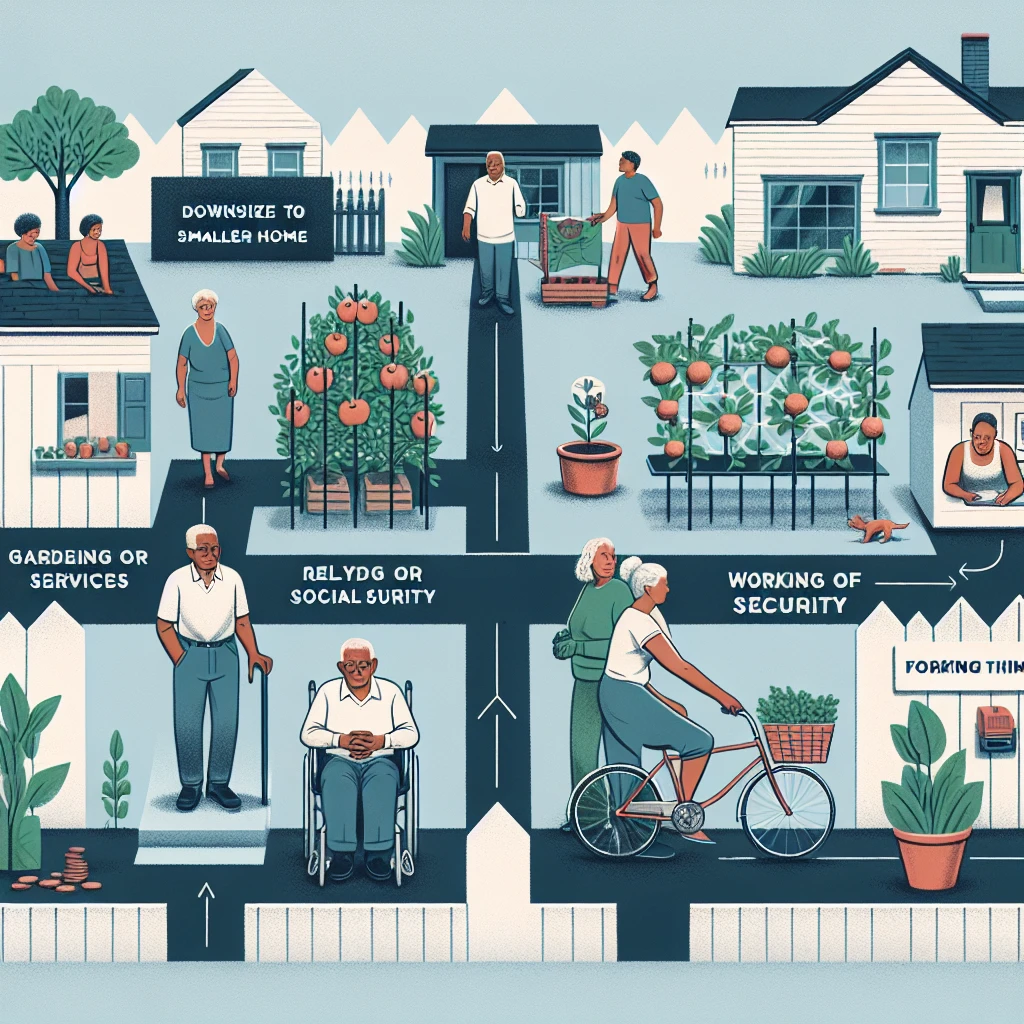KEY POINTS
- Even if your retirement savings are lacking, you can still take action to reduce financial stress.
- Numerous retirees manage to live comfortably relying solely on Social Security benefits.
- You may need to make lifestyle adjustments or extend your working years beyond your initial plans.
If you’re approaching retirement without a substantial nest egg, you’re not alone. According to AARP, 20% of Americans over the age of 50 haven’t saved anything for retirement. This can be daunting, and you might have to revise your plans. However, it’s doable—millions of retirees survive with Social Security as their primary income source.
If you lack savings, an individual retirement account (IRA), or a 401(k), consider taking these four steps today:
Contents
1. Create a Retirement Budget
Facing difficult situations head-on is challenging, but necessary. Calculate the bare minimum you’ll require to stay financially afloat in retirement. With no savings, you might heavily rely on Social Security, so it’s crucial to plan how you’ll manage.
To estimate your benefits, visit your Social Security account online. For reference, the average benefit in January 2024 was $1,907. Medicare can partially cover your healthcare expenses, and you might qualify for additional support like housing and food assistance.
Depending on your current lifestyle, tough choices may be necessary. This could mean significantly reducing your spending to fit a smaller budget. If housing costs become unaffordable, downsizing might be an unfortunate necessity.
2. Stay Competitive in the Job Market
To alleviate retirement budget pressures, consider working beyond your planned retirement age. This might require updating your skills and maintaining professional connections. If staying in your current job isn’t feasible or desirable, other opportunities await, especially if you continue to grow professionally.
While escaping work pressures might have been appealing, working longer can also offer benefits. A T. Rowe Price study found many retirees return to work for social and emotional reasons. Remote work provides a chance to earn while creating a new work-life balance.
3. Explore Additional Income Sources
Every budget is a balance between spending and income. If Social Security doesn’t suffice, think creatively about generating extra income.
Side Gigs
MarketWatch reports about one-third of baby boomers have side gigs. These can range from copywriting and coaching to tutoring, pet sitting, or working as a virtual assistant. Leveraging career skills can help you secure a higher-paying side hustle.
Rental Income
If you own your home and have extra space, renting a room or your garage could provide additional income.
Unclaimed 401(k)s
Reflect on past employment: Did you have a 401(k)? Capitalize estimates $1.65 trillion lies in unclaimed 401(k) accounts. Frequent job changes may mean forgotten funds in an old account.
To locate these funds, check your paperwork or contact former employers. Online databases like the National Registry of Unclaimed Retirement Benefits can also help.
4. Optimize Tax-Advantaged Savings
If you’re still employed, there’s time to utilize tax-advantaged retirement accounts. Even a few years of tax benefits are beneficial. If your employer offers a 401(k), learn how to contribute and whether they match contributions.
If a 401(k) isn’t available, explore IRAs. Traditional IRAs can lower your current tax bill. Roth IRAs allow post-tax contributions with tax-free withdrawals in retirement. Most top stock brokers offer them. Note that there are annual contribution limits, with additional catch-up contributions allowed if you’re over 50.
Key Takeaway
Retiring without savings is challenging, and implementing solutions is often easier said than done. While cost-cutting is a start, it doesn’t fully address the emotional impact of changes like downsizing during your golden years.
Nevertheless, if there’s one thing to take from this article, it’s this: While it’s not easy, it’s doable. Social Security benefits and other assistance can provide a financial foundation, and your income doesn’t have to cease entirely at 65.




